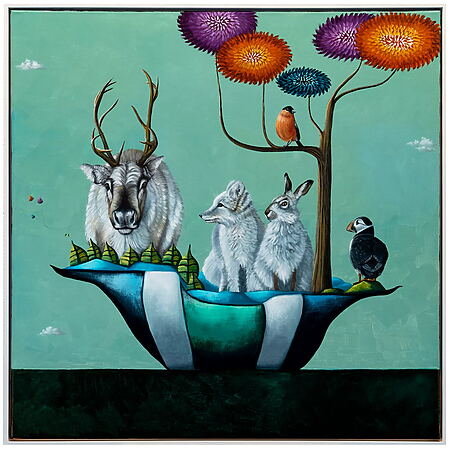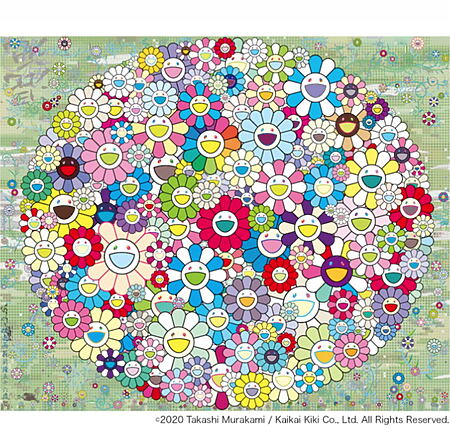A world without music would hardly be imaginable these days - a world without the piano as well. The piano has been with us for several centuries and has shaped some musical milestone in history.
And even if the art of the piano in modern music between synthetic rhythms and electrical guitars hardly seems to play a role anymore, it is still unthinkable that it dies out one day.

image source: stock.adobe.com @minerva Studio #52766168
Because the art of piano is a very special art form, as science now knows. It is therefore worth taking a closer look at the piano and the question of what makes this instrument so special.
A year -old tradition
The piano is a classic key instrument and accordingly its predecessors existed in the 3rd century BC. Anyone who looks back further will even find so -called Saitenklinger, i.e. musical instruments, which are now considered the basic building block of the chordophone.
Accordingly, it is an instrument with a long tradition - even if the piano only developed in its current form from 1350.
At that time, the technology of the mastermind was invented using hydraulic power, which serves as the basis of the instruments Zither, harpsichord and piano. This technology developed for centuries until the first piano with hammer mechanics 1709 in Florence .
This is therefore often referred to as the piano year of birth. About 50 years later, the new instrument had prevailed across the board and changed the music fundamentally.
Many big names of music history began their careers with the piano, including Ludwig van Beethoven and Mozart, who was considered a child prodigy on the buttons. A new art form was born.
The piano from a scientific perspective
Even today, many musicians start their careers with the piano lessons, often already at an early age. around eight million pianos in Germany alone - the trend is rising. According to their own statements, 60 percent of people in developed countries would like to master the piano playing and thanks to the Internet there are more and more autodid acts.

Image source: Stock.adobe.com @shintartanya #343607354
Often the piano has been in family -owned and represents a valuable heirloom for generations. But this is not the only reason why many people still learn the piano. Instead, science now also knows that the art form has numerous advantages and that these positive effects on the brain and well -being are certainly a reason for the continuing popularity of the instrument:
a) Piano games ensure the "Mozart effect"
Learning something new ensures new synapses in the brain and is therefore always good training in order to stay mentally fit into old age. However, this should be particularly effective when playing the piano, as the so-called "Mozart effect" says. As already mentioned, Mozart was considered a real child prodigy on the piano and has created numerous world -famous works.
Since the 90s, the thesis has been circulating that people are becoming more intelligent if they only listen to these works. For example, ten minutes should be enough to improve the spatial imagination. The theory is still controversial, but the fact is that playing the piano changes the brain in a positive way. Because the formation of the new synapses improves concentration and is also intended to optimize language skills.
b) The emotional level of piano art
Playing the piano acts not only on the intellectual, but also on an emotional level. It helps to reduce stress, which on the one hand is due to the sound of the music and on the other hand probably switch off the mental one because the concentration is entirely on the keys. The art of the piano helps to reduce fears and worries and instead to find inner peace.
Although exercise is of course also important for health, playing the piano can determine as after a workout It is therefore an optimal addition to sporting activities as a hobby to find a compensation for job, obligations & Co.
c) More coordination (not only) for the hands
Anyone who plays the piano knows how demanding the coordination is. The hands, even individual fingers, have to carry out different movements in the correct clock. A pianist therefore needs maximum control over his hands, so that he trains their coordination - and this again promotes the formation of synapses in the brain.
At the same time, it is important to listen to the music, to maintain the rhythm, to decipher the grades and to immediately implement them in corresponding actions on the keyboard. The coordination is promoted in many ways when playing the piano and that is why playing the piano is an art in itself.
d) Endurance and discipline: Two classic virtues, ...
... which are still considered important success factors in life, are promoted in a unique way when playing the piano. Because not even Mozart became a child prodigy overnight. Instead, a lot of practice is important, over a long period of time to become virtuosos at the keyboard. Children in particular can therefore learn an important lesson for life through the piano lessons.

image source: stock.adobe.com @irina Schmidt #425963475
If you face this complex challenge and have a sense of achievement, you will most likely show more endurance and discipline in other areas of life. This can more success in professional life , in other hobbies or even in private life, and it can therefore be said that playing the piano can make it more successful.
e) improved language and reading ability
As described in advance, the art of piano is much more complex than pure pressing on buttons. Instead, it is about learning a new language, namely those from notes, keys, chords, rhythms & Co. Because if you want to play complex scores later, you first face a completely new world that you have to open up.
Only with the necessary knowledge and a lot of practice can a pianist at some point teach himself, at best promptly, i.e. directly during playing. This requires a high degree of reading skills and promotes the understanding of new languages - be you a musical nature or classic foreign languages.
Especially with reading skills, it is therefore not surprisingly recognizable in children who master the piano, a lead over the same age.
Many of them therefore have better school grades and therefore the claim that playing the piano makes it smarter, their authorization. Likewise, other factors such as the support from the parents' house can also play a role. This is also why studies on the subject are controversial.
Nobody is too old for the art of piano
In the end, it is irrelevant anyway whether playing the piano makes it smarter. The fact is: it is a fascinating and beneficial art, on an intellectual and on an emotional level. Everyone can therefore only benefit from learning them and maintaining them as a hobby - or even taking a professional career as a pianist.
After all, the art of piano offers endless musical possibilities from classic works of big names such as Mozart, Beethoven, Handel, Vivaldi, Chopin, Brahms, Schubert or Debussy to blues and jazz to modern pieces. Everyone can play what he or her likes, and boredom never arises.
Playing the piano is also happy to be connected to singing and if you want, you can compose your own music pieces. In the end, the piano is simply an indispensable part of music history and thus an art that should be maintained in order to preserve it from extinction.

picture: stock.adobe.com @Naoto takahashi #292177917
There are many good reasons to learn the piano yourself, regardless of age. Because not only children, but also adults or even seniors can benefit from the advantages mentioned . In addition, nowadays there is a large selection of pianos from imposing wings to the space -saving digital piano, so that everyone finds a place in their own four walls. And if you get really to the matter , you can even find a high -quality piano at a small price with a used model.
So everyone has the chance to become part of this unique history of the art of piano and thus find a musical and creative hobby. Because even if music is becoming increasingly electronic these days, the simple combination of playing the piano and singing is still very popular. So one thing seems certain:
The piano will continue to shape music as an art form in the future!

Owner and managing director of Kunstplaza. Publicist, editor and passionate blogger in the field of art, design and creativity since 2011. Successful conclusion in web design as part of a university degree (2008). Further development of creativity techniques through courses in free drawing, expression painting and theatre/acting. Profound knowledge of the art market through many years of journalistic research and numerous collaborations with actors/institutions from art and culture.

















